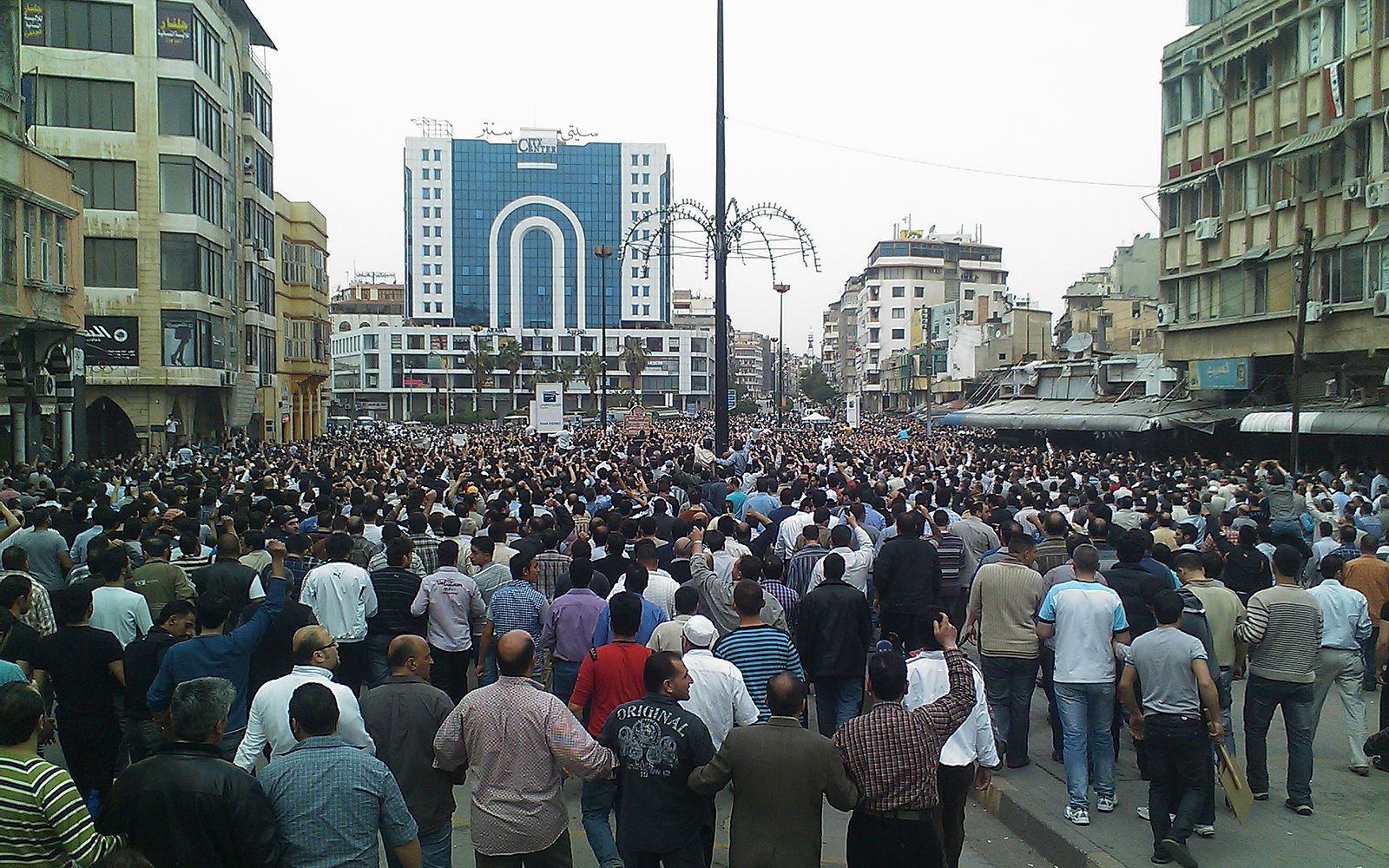A milestone for international law; Germany opens first war crime trials against the Syrian regime

It was the first of October 1945 mere months after the Second World War had ended that the allied forces came together in the German city of Nuremberg to write international legal history. That autumn day set a milestone for the prosecution of what are now considered crimes against humanity. It was the first instance in history in which war criminals could not rely on national sovereignty but were judged based on a universal law applicable to humanity as a whole.
Seventy-five years later, Germany is witnessing another milestone in the history of international law as the first trial against the Assad regime is taking place in Koblenz. Under the keen observation of international legal experts, the lawsuit against Anwar R. and Eyad A. two former officers of the Syrian government opened last Thursday. Anwar R., who was a higher-ranking official within the Syrian secret service, is accused of having overseen a prison facility in which thousands of prisoners were tortured in the months after protests erupted in the Middle Eastern state in 2011. The other defendant, a lower-ranking official, is charged with complicity in at least 30 cases of torture that occurred within the same period. The court case is gaining a lot of attention since it makes the first instance of legal prosecution of the Assad regime since the start of the civil war in 2011.
The prior inaction of the international community can be primarily attributed to the politics surrounding the prosecution of individuals linked to the war in Syria. Notably, this failure to act has been caused by Russian and Chinese vetoes in the UNSC that prevented the establishment of a war tribunal for crimes committed in the ongoing civil war. The fact that the two regime officials can still be prosecuted is made possible by the principle of universal jurisdiction that allows countries to trial individuals of severe crimes against international law – such as crimes against humanity, war crimes, genocide, and torture – even if they were not committed on their soil or directly connected to the country. This principle that was also developed through the Nuremberg trials is based on the idea that such crimes harm the international community in such a way that individual states can be empowered to protect it.
Particularly, in the case of the Syrian war, this principle could be crucial to bringing individuals that perpetrated crimes under the regime to justice as a lot of Syrian officials fled the country themselves and are currently residing in third countries. Still, while the idea of universal jurisdiction is right in principle, it leaves law enforcement in these countries with the almost unfeasible task of arresting and building a case against these individuals. In the case of the two men under trail in Koblenz, for instance, the German authorities were helped by refugees who recognized the former members of the regime and will testify in the subsequent trial. The statements by the witnesses that, in some cases, were direct victims of the prosecuted men, as well as official documents that were smuggled out of the war zone, will be used as evidence of the crimes committed by officials in Syria.
International human rights organizations and international law experts alike view the trials as a milestone in the prosecution of Syrian war criminals. Notably, the understanding is that the judgments in Germany could lead to similar lawsuits in other countries that could also feature higher officials of the Assad regime in the future. For the Syrians speaking out against their former tormentors, the trials in Koblenz are essential in two regards. For them, it serves as a way to bring justice to a regime that inflicted so much suffering on them, and it offers the opportunity to shed light on what happened and continues to happen in their country.
In this spirit, the German prosecutor reminded everyone of what he deemed a double obligation inherent to the case at hand. On the one hand, he emphasized the commitment to the victims that had found refuge in Germany to bring their tormentors to justice. On the other hand, he reminded everyone of the obligation arising from German history and the importance of universal jurisdiction.
While this historic importance shows the significance of international jurisdiction, the circumstances of the case also show that 75 years after the Nurnberg trials, the prosecution of crimes is still subject to national politics. However, or precisely because this is still the case, the trial in Koblenz reminds us all of the importance of international legal cooperation that, despite great power politics, enables the prosecution of crimes we all decided shall not remain unpunished.
Further Reading:
https://edition.cnn.com/2020/04/23/middleeast/syria-germany-trial-intl/index.html
https://www.aljazeera.com/news/2020/04/world-syria-torture-trial-opens-germany-200423081540338.html
https://www.dw.com/en/syrias-intelligence-apparatus-on-trial-in-germany/a-53215777
Featured Image:
Bo yaser (https://commons.wikimedia.org/wiki/File:Huge_demonstration_in_Homs_against_Al_Assad_regime.jpg), „Huge demonstration in Homs against Al Assad regime“, https://creativecommons.org/licenses/by-sa/3.0/legalcode



